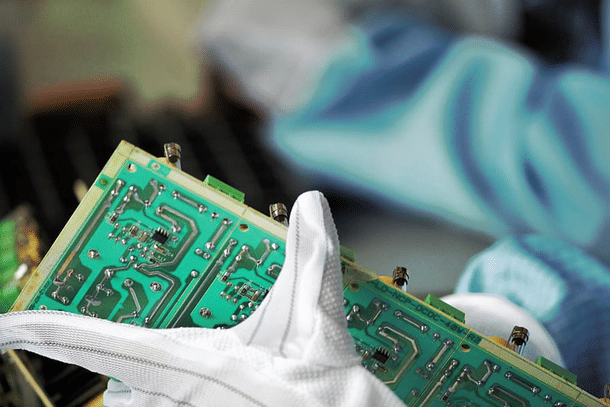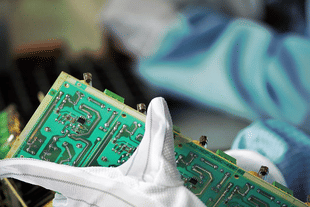Business
Chip Wars: After America, Japan Restricts Exports Of Semiconductor Tools, Hurting Beijing
Swarajya Staff
Mar 31, 2023, 11:36 AM | Updated 11:36 AM IST
Save & read from anywhere!
Bookmark stories for easy access on any device or the Swarajya app.


Japan will implement export regulations on 23 equipment types utilized in semiconductor manufacturing, in response to US' restrictions to block China from advanced chip technology.
Japan has fulfilled its part of a three-way agreement with the US and Netherlands, to limit China's access to equipment for advanced semiconductor production.
Geopolitical tensions and pressure on Japanese companies to navigate both markets have resulted in Japan refraining from publicly acknowledging the agreement.
Japan's Trade Minister Yasutoshi Nishimura announced on Friday (31 March) that controls would apply to six equipment categories in chipmaking, including specialized areas such as lithography and etching.
Lithography machines are one of the most important components in the semiconductor manufacturing process.
Even if the Chinese were able to develop an indigenous EUV lithography machine, similar to the one by ASML with over 457,000 unique components, they’d have exhausted billions of dollars, lost years worth of production, and chances are, by that time, new advanced technologies would be in play.
Therefore, restrictions by Japan are a double whammy on China's semiconductor ambitions.
US's Applied Materials, Dutch ASML, and Japan's Tokyo Electron lead in lithography equipment, and while the Chinese have been trying to pressurise the Dutch, the restrictions by US and Japan will pose problems for Beijing.
Japanese officials have revealed that their imposed restrictions on equipment exporters are broader than those initiated by the US last year.
These exporters will essentially require licenses that cover all regions, which would put the sale of equipment to third-party countries that have the potential to manufacture high-end chips for military use, under the watchful eye of the ministry.
Starting from July, more companies will be impacted by the regulations than originally anticipated.
Before the January deal, the US imposed strict restrictions on exporting chipmaking equipment to China.
These sanctions would only have a significant impact if Japan and the Netherlands followed suit, according to a report by the Financial Times.





